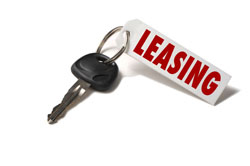

A motor vehicle lease allows an entity to possess and use a motor vehicle in return for consideration, for more than 180 days, without changing ownership of the vehicle. The lessor leases the vehicle to another person under a lease agreement. A lease facilitator may act as a facilitator of the agreement. In Texas, lessors and lease facilitators are required to be licensed.
The lease facilitator license allows a person to hold himself or herself out to be a leasing agent or leasing company. This person solicits someone to enter a contract of agreement to lease a vehicle. A lease facilitator by definition, is not the lessor or owner of a vehicle, but rather someone who puts the lessor, selling dealer, and lessee (customer) together. However, a licensed vehicle lease facilitator may sign a vehicle lease agreement as a vehicle lessor before the vehicle lease is assigned, transferred, or conveyed to an ultimate lessor.
The lessor license is required of a person who, under the terms of a lease agreement, leases or offers to lease a motor vehicle to another person.
A lessor licensee does not need to have a lease facilitator license to facilitate leases for themselves. The lessor license includes the ability to facilitate its own leases. However, if the lessor also facilitates leases between lessees and other lessors, the lessor does need a lease facilitator license in addition to their lessor license.
Note: Franchised dealers do not have to apply for a separate lessor license to be able to lease the vehicles they are licensed to sell.